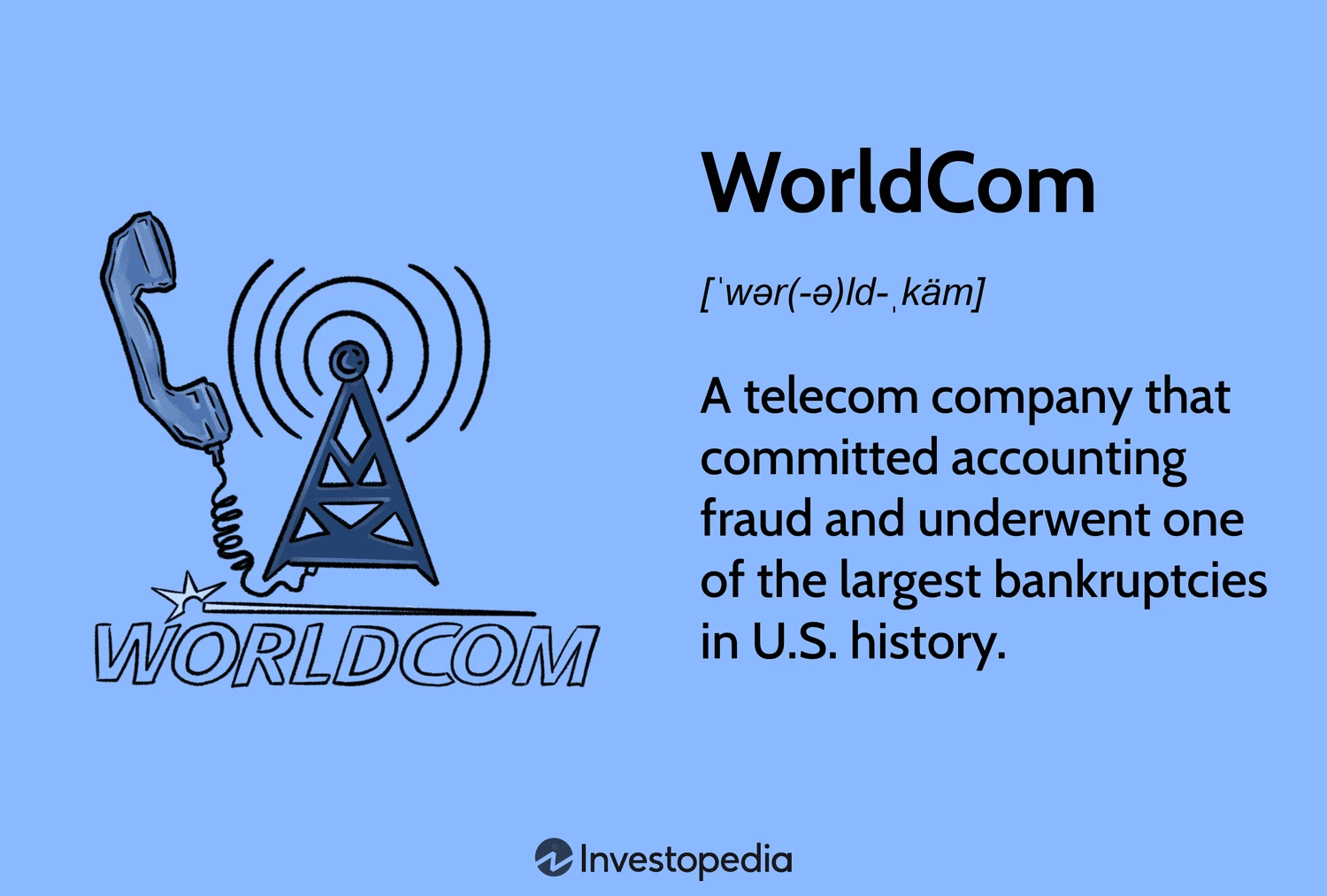What Was WorldCom?
WorldCom, a prominent American telecommunications company, once stood as a giant in the long-distance service sector within the United States. However, its legacy became tainted by one of the most massive accounting scandals in American business history, following in the shadows of infamous cases like Enron and Tyco. The scandal exposed WorldCom’s fraudulent financial practices, leading to its involvement in one of the most significant bankruptcies ever witnessed. Emerging from bankruptcy, the company underwent rebranding before its network assets were ultimately bought by Verizon.
Understanding WorldCom
In its nascent beginnings in 1983 as Long Distance Discount Service, WorldCom was founded post the AT&T breakup by visionaries Murray Waldron, William Rector, early investor Bernard Ebbers, and their partners. With strategic access to low-cost phone lines due to regulatory mandates, WorldCom swiftly ascended through aggressive acquisitions, culminating in its pinnacle during the dotcom bubble with a market capitalization reaching $175 billion.
As the tech bubble burst, WorldCom resorted to dubious accounting methods to mask declining profitability. These actions inflated profits through accounting manipulations, leading the organization down a treacherous path of misrepresentation.
Cooking the Books
WorldCom’s downfall was fueled by a series of acquisitions and plummeting revenues, pushing the company into dire financial straits. Resorting to drastic measures, executives manipulated accounting records to present a facade of financial prosperity to stakeholders.
By capitalizing expenses and inflating net income, WorldCom fabricated profits to the tune of billions, orchestrated through deceptive financial maneuvers, illustrating a stark departure from ethical business practices.
The WhistleBlowers
Critical to uncovering the deceit at WorldCom were individuals like Cynthia Cooper and Gene Morse, who diligently investigated and unearthed financial irregularities within the organization. Exposing discrepancies in financial documentation, including misleading reserves and questionable transactions, their efforts were instrumental in unveiling the systemic deceit.
Cynthia Cooper’s unwavering commitment to ethical practices was recognized as she was lauded as Time’s Person of the Year in 2002, subsequently establishing herself as an esteemed author and industry expert.
WorldCom Bankruptcy
Succumbing to the weight of its misdeeds, WorldCom was compelled to seek refuge in bankruptcy, unveiling a staggering $11 billion adjustment to earnings over a decade, laying bare the extensive fraud amounting to nearly $79.5 billion.
Whilst bankruptcy marked a bleak chapter, it enabled WorldCom to embark on a path of restitution, preserving operational continuity for customers, safeguarding assets, and initiating a much-needed restructuring despite its tarnished corporate standing.
Fallout and Aftermath
The repercussions of the scandal reverberated across stakeholders, resulting in severe retribution for implicated figures such as Bernard Ebbers and Scott Sullivan, who faced legal consequences for their involvement in the deception.
Post-bankruptcy, the company metamorphosed into MCI before its eventual acquisition by Verizon, signifying the conclusion of a tumultuous chapter marred by deceit and financial malpractice.
The Bottom Line
WorldCom’s narrative underscores a cautionary tale, epitomizing the detrimental consequences of falsified prosperity and unethical conduct within the corporate realm. While the company ultimately emerged from the shadows of bankruptcy, its legacy serves as a stark reminder of the imperative for transparency and corporate integrity in today’s business landscape.
